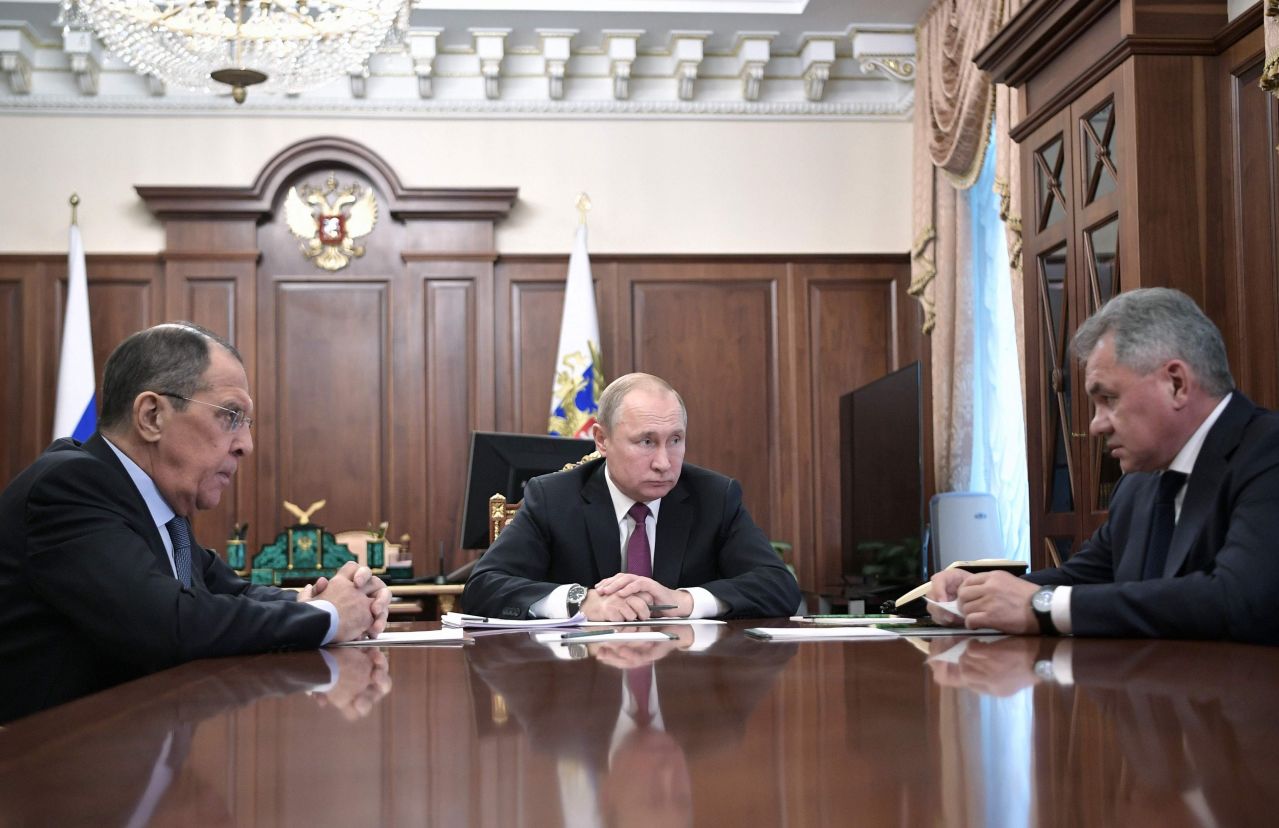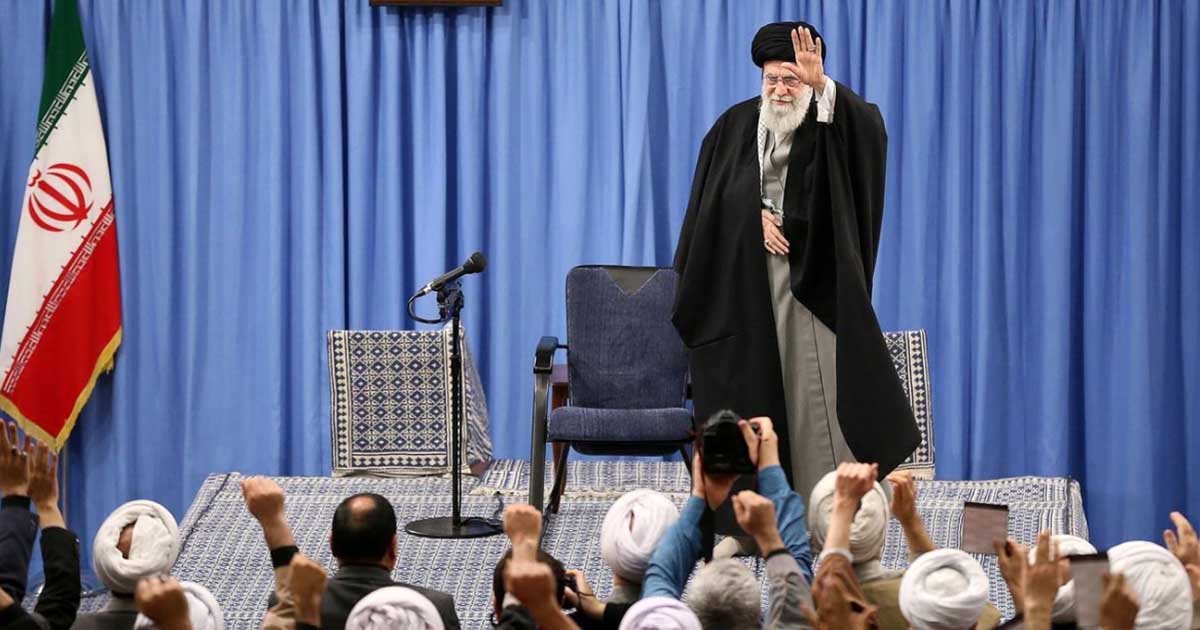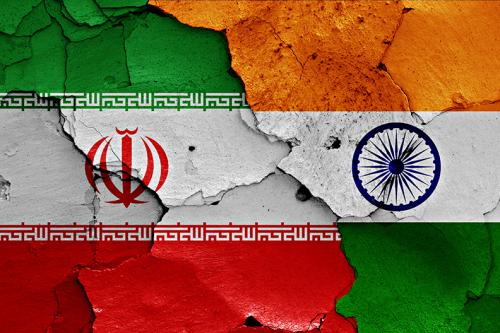Dr. Zafar Nawaz Jaspal |
The trends in the global politics manifest that Great Powers are investing immensely in advancing their military arsenals. They are endeavoring to introduce new generations of the weapons. Since the withdrawal from 1972 Anti-Ballistic Missile Treaty in June 2002, the Americans have been investing immensely in the development of a reliable missile shield. They are also manufacturing new generations of nuclear weapons.
US-Russia’s Lethal Arms Race
President Trump has said the United States should “strengthen and expand its nuclear capability.”
The weakening of nuclear non-proliferation regime would boost the vertical proliferation and may also cause horizontal proliferation of nuclear weapons.
Russians are equally investing in advancing their missiles inventory. Indeed, restart of the lethal arms race between Moscow and Washington would be having destabilizing repercussions for international security. The recent developments reveal that both Moscow and Washington seem the least concern about the sanctity of arms control treaties and nuclear non-proliferation regime.
For the sake of their military build-up, they are ignoring their arms control commitments. Consequently, the nuclear non-proliferation regime and arms control treaties are gradually losing their significance. The weakening of nuclear non-proliferation regime would boost the vertical proliferation and may also cause horizontal proliferation of nuclear weapons. The increasing membership of the nuclear weapon states club would multiply nuclear risks.
Read more: Arms race in South Asia will continue thanks to new Indo-Israel missile deal
The Future of Intermediate-Range Nuclear Forces Treaty
The Americans believe that SSC-8 cruise missile operationalisation is a violation of the 1987 INF Treaty. The non-compliance by the Moscow may result in the deployment of the stealth Long-range Stand-off (LRSO) cruise missiles by the United States in Europe.
Presently, the 1987 Intermediate-Range Nuclear Forces (INF) Treaty is encountering serious challenges. Russian Federation developed two battalions of the SSC-8 cruise missile in violation of the INF Treaty. In December 2016, Moscow shifted one battalion from that test site to an operational base in the country. The second is still located at Russia’s missile test site at Kapustin Yar in southern Russia near Volgograd.
The development and deployment of an intermediate-range cruise missile is serious concern for the United States. The Americans believe that SSC-8 cruise missile operationalisation is a violation of the 1987 INF Treaty and destabilizing for the European security. Washington approached Moscow for the compliance of INF Treaty, but failed to bring it back to the compliance of the Treaty. The non-compliance of Moscow may result in the deployment of the stealth Long-range Stand-off (LRSO) cruise missiles by United States in Europe.
President Ronald Reagan and Mikhail S. Gorbachev signed a bilateral arms control treaty, formally known as the Intermediate-Range Nuclear Forces Treaty and commonly called the INF Treaty in December 1987.The INF Treaty requires destruction of the Parties’ ground-launched ballistic and cruise missiles with ranges of between 500 and 5,500 kilometers, their launchers and associated support structures and support equipment within three years after the Treaty enters into force.
Importantly, both sides complied the Treaty in the beginning. For instance, Russia and US destroyed 2,692 missiles. The missiles Russians destroyed included SS-20. Americans destroyed their Pershing II ballistic missiles and ground-launched cruise missiles. However, in 2017, both sides seem lesser committed with objectives of INF Treaty. The violation of INF Treaty undermines the vitality of almost all arms control treaties/arrangements between Russian Federation and United States.
Read more: Trump and China both taking actions that risk sparking dangerous Middle East arms race
START Treaty
The arms race between the Russians and Americans definitely has domino effect in the global and regional strategic environment. The American and Russian military modernization instigates Beijing to invest more in the military sector.
President Donald Trump had expressed his doubts about the benefits of the 2011 New START Treaty. The Treaty limits United States and Russian Federation long-range missile launchers, bombers and the nuclear warheads, which they carry. The withdrawal of Washington from the 2011 New START Treaty immediately terminates the bilateral Treaty. Indeed, the cessation of the Treaty unleash lethal arms race between Russians and Americans.
Another causality of the current strategic competition between Moscow and Washington is Plutonium Disposal Treaty. This treaty was concluded in 2000 and required Russia and the United States to destroy military stockpiles of plutonium. On October 3, 2016, President Vladimir V Putin signed a decree to end Russia membership of the plutonium disposal treaty.
The arms race between the Russians and Americans definitely has domino effect in the global and regional strategic environment. The American and Russian military modernization instigates Beijing to invest more in the military sector. New Delhi is already engaged in the development and purchases of the sophisticated military hardware. India’s mega investment in both conventional and nuclear weaponry is perilous for the South Asian Strategic stability.
Read more: Will Iranian posturing through ballistic tests threaten an arms race in the Middle East?
The modern states seems unprepared to compromise on their sovereign existence. Therefore, the anarchy in the global politics continues, despite the immense efforts of the global and regional aspirants to establish vertical hierarchical order for the permanency of their hegemony. The continuity of anarchy in the global politics and mega investments in the military sector are perilous for the socio-economic developments of the nations. Despite the negativity of the arms race, the nations are endeavouring to build new generations of military hardware. Thus, nations are heading for destabilizsing arms race.
Dr. Zafar Nawaz Jaspal is Associate Professor, School of Politics and International Relations, Quaid-i-Azam University, Islamabad. He is also an advisor on Non-Proliferation to SASSI, London and a course coordinator at Foreign Services Academy for the Pakistan Ministry of Foreign Affairs. Email: jaspal_99@hotmail.com. This piece was first published in Pakistan Observer. It has been reprinted with permission. The views expressed in this article are the author’s own and do not necessarily reflect Global Village Space’s editorial policy.














